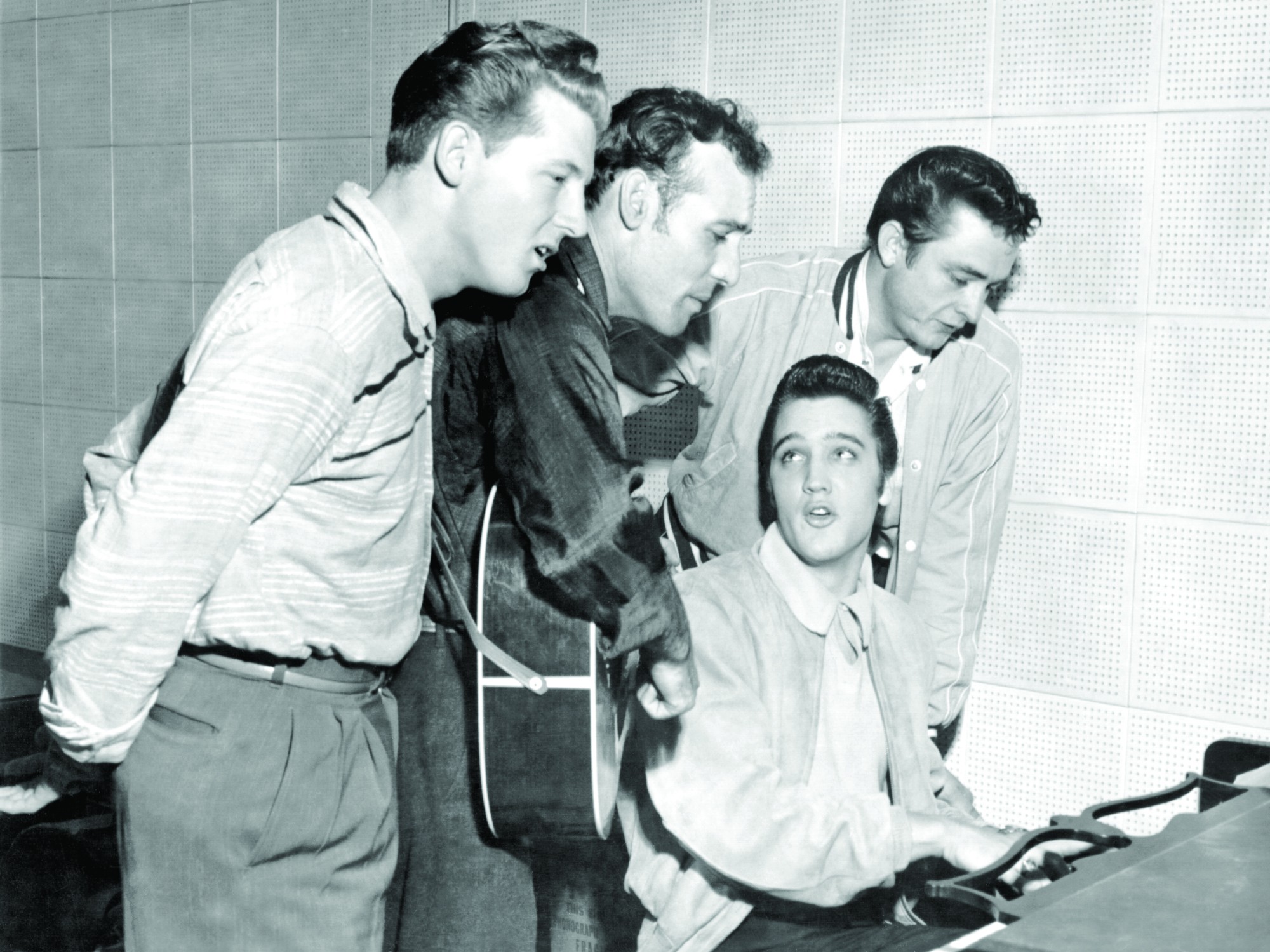Nostalgic America
Photos: 25 Rare Pictures Of Elvis Presley Through The Years
By Bruce Berns · November 25, 2024
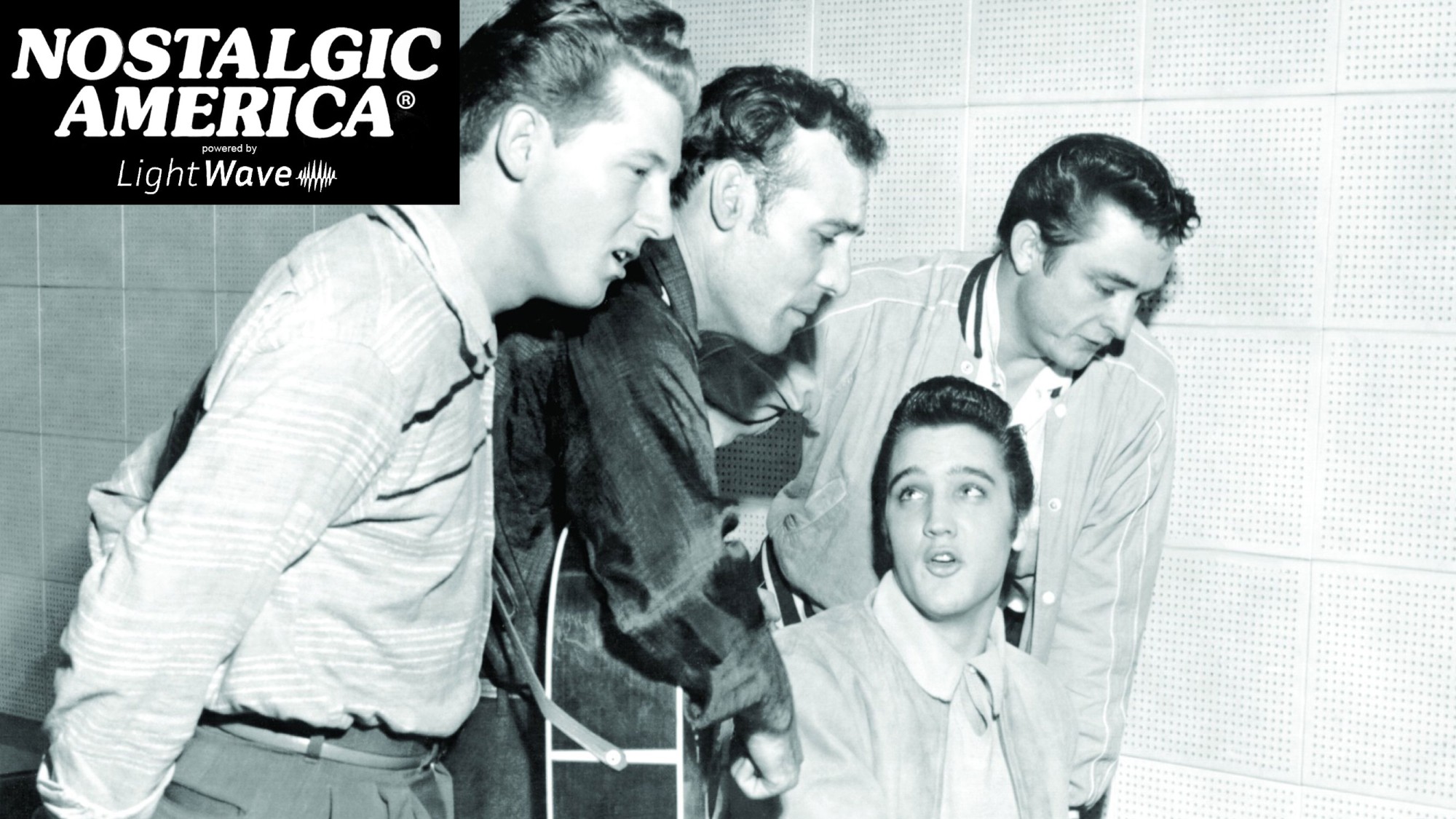
Known as the King of Rock 'n' Roll, Elvis captured the hearts of millions with his groundbreaking music, electrifying performances, and charismatic style. Yet behind the legend lies a more personal story, told through rare and intimate photographs that provide a glimpse into the man behind the myth.
This collection of 25 rare Elvis Presley pictures showcases his journey from humble beginnings in Tupelo, Mississippi, to his meteoric rise to global stardom. From heartfelt family moments and candid behind-the-scenes snapshots to career-defining performances, these photos reveal a side of Elvis that fans rarely get to see.
Each image captures a different facet of his life—his devotion to family, his passion for music, and his undeniable charisma. Join us on this visual journey and rediscover why Elvis Presley’s legacy continues to shine. Getty Images / Nostalgic America, Inc.
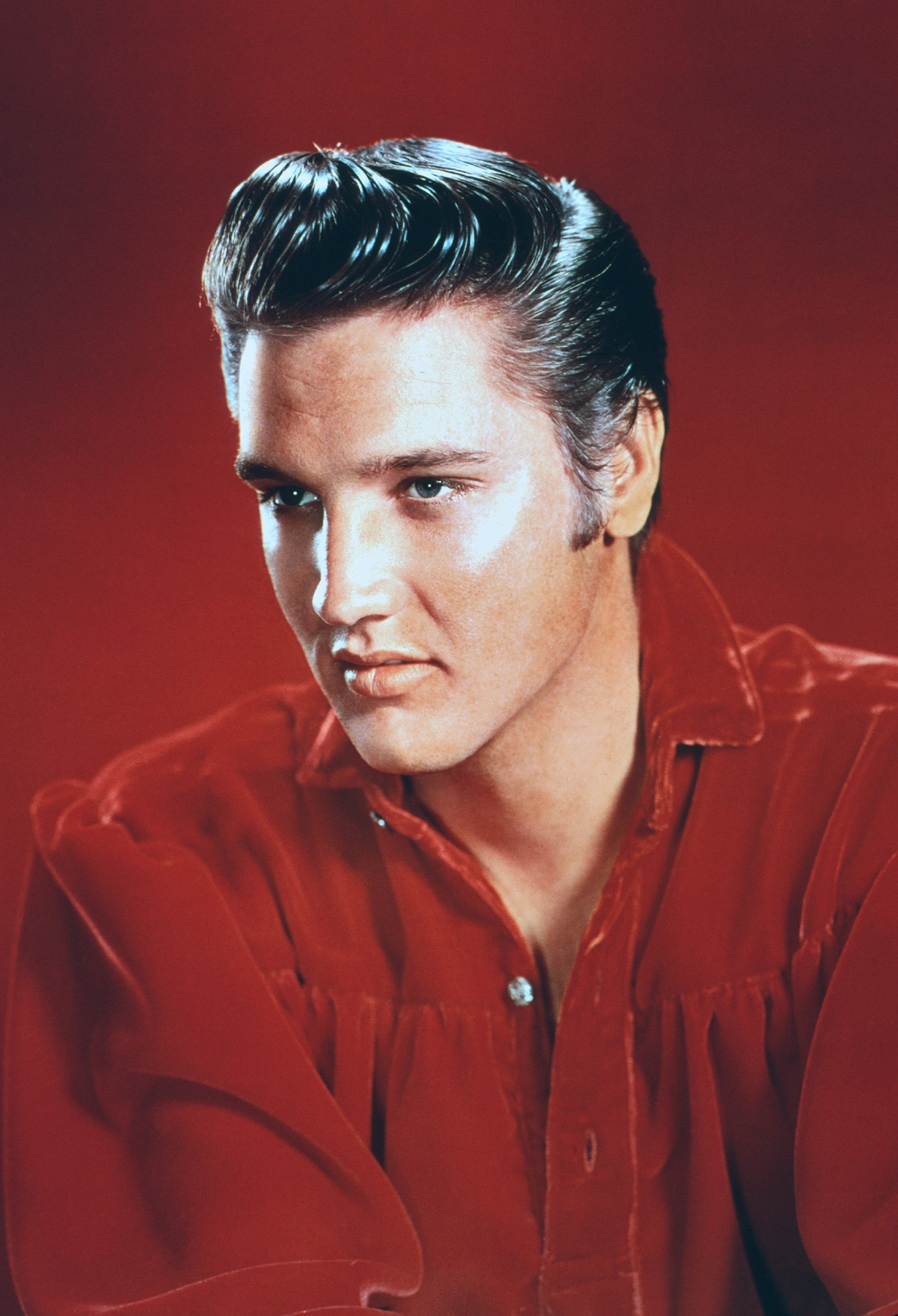
Elvis Presley: The King of Rock 'n' Roll
From his humble beginnings in Tupelo, Mississippi, to becoming one of the most iconic figures in entertainment, Elvis' journey was marked by groundbreaking achievements, timeless music, and an enduring legacy that continues to inspire generations. Getty Images / Nostalgic America, Inc.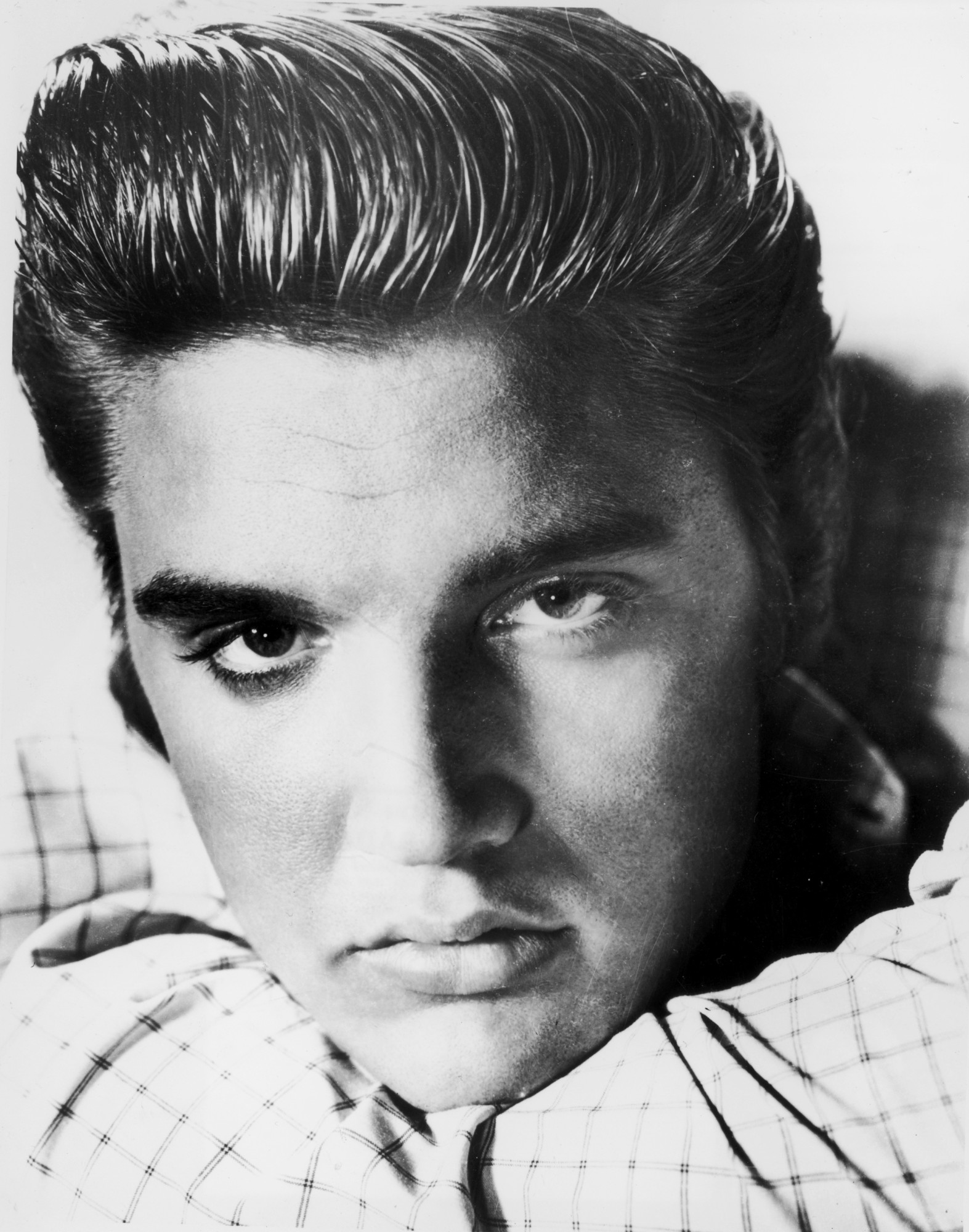
Early Beginnings and Discovery
Elvis Aaron Presley was born on January 8, 1935, in a modest household. Music played a vital role in his life from an early age, influenced by gospel music at church, blues from Beale Street, and country from local radio. These diverse influences formed the foundation of Elvis' unique sound, a fusion of genres that appealed to a broad audience. Getty Images / Nostalgic America, Inc.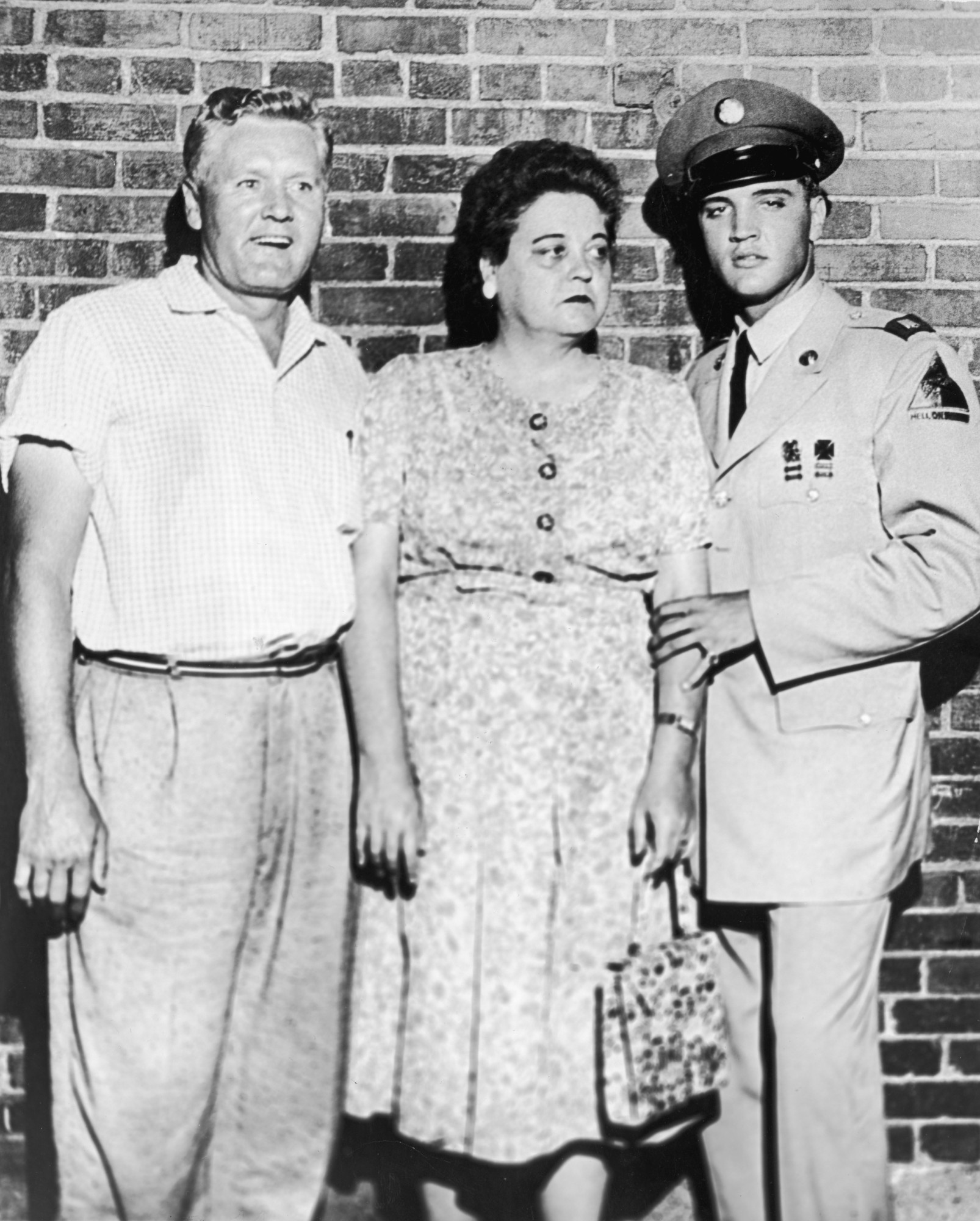
Elvis and His Parents
Elvis Presley was deeply devoted to his parents, Vernon and Gladys Presley. Born into a close-knit family, Elvis shared a particularly strong bond with his mother, Gladys, who nurtured his musical talent and ambition. Her death in 1958 devastated him, leaving an emotional void he carried throughout his life. Vernon, who managed much of Elvis’ personal affairs, supported his son’s career while maintaining a close relationship. The family’s humble beginnings in Tupelo, Mississippi, shaped Elvis’ drive to succeed. Graceland, their Memphis home, became a testament to Elvis’ dedication to providing for his family and honoring their sacrifices. Getty Images / Nostalgic America, Inc.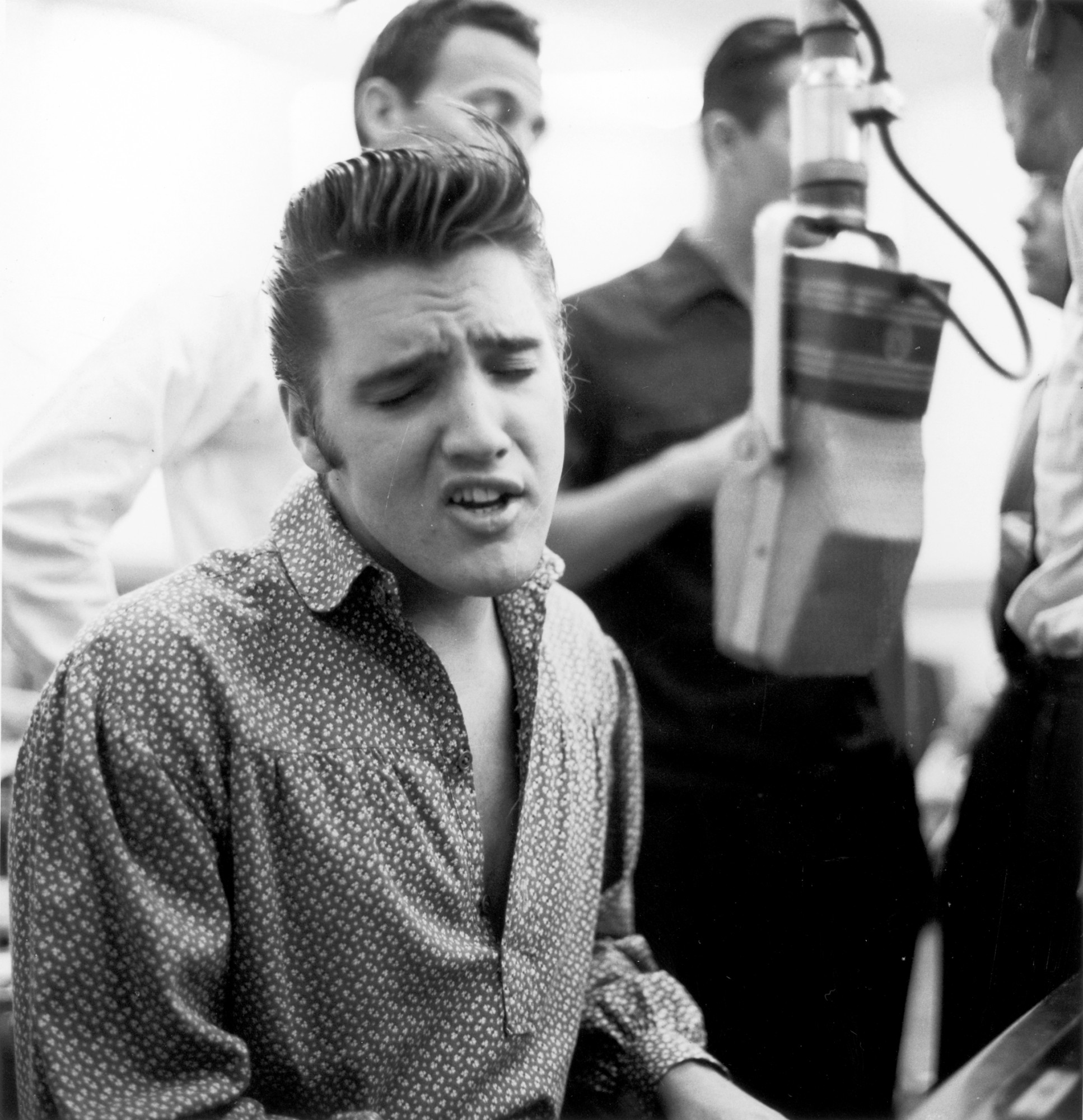
Sun Studio in Memphis
In 1953, Elvis walked into Sun Studio in Memphis to record a few songs as a gift for his mother. Sam Phillips, the studio’s owner, noticed his potential but didn’t fully capitalize on it until a year later. In 1954, Phillips teamed Elvis with guitarist Scotty Moore and bassist Bill Black, creating a trio that would define early rockabilly. Their rendition of "That's All Right" became an instant hit on local radio stations, launching Elvis’ career. Getty Images / Nostalgic America, Inc.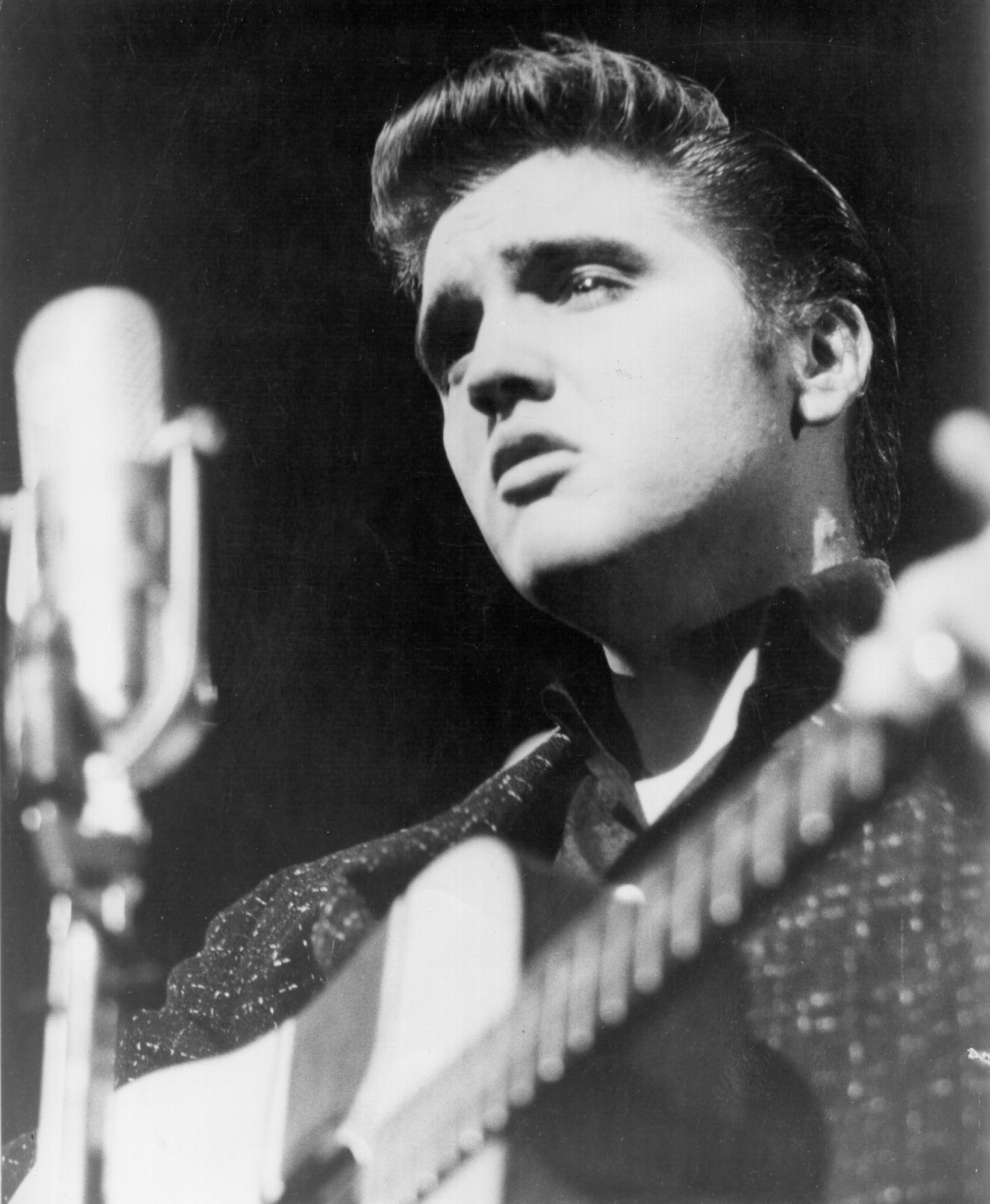
Breakthrough with RCA Records
By 1955, Elvis had caught the attention of Colonel Tom Parker, a savvy manager who recognized the young singer’s potential for national and global success. Parker secured Elvis a deal with RCA Records in 1956, and the partnership led to a meteoric rise. Elvis’ first single with RCA, "Heartbreak Hotel," became a smash hit, topping the Billboard charts and selling over a million copies. Getty Images / Nostalgic America, Inc.
One Hit after Another!!!
The success of "Heartbreak Hotel" was followed by a string of chart-toppers, including "Blue Suede Shoes," "Hound Dog," "Don't Be Cruel," and "Love Me Tender." His blend of energetic rhythm, soulful vocals, and charismatic stage presence captivated audiences and introduced rock 'n' roll to mainstream America. Getty Images / Nostalgic America, Inc.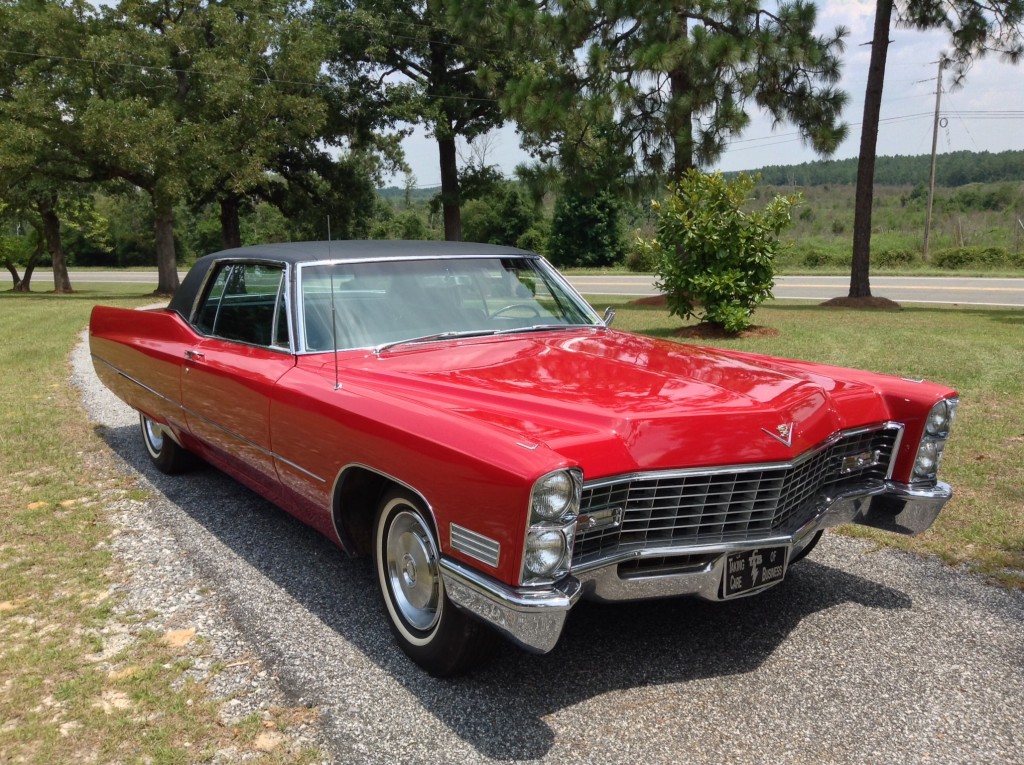
Elvis’ Red Cadillac
Elvis Presley’s red Cadillac became a symbol of his love for flashy cars and his generosity. One of his first major purchases after achieving fame, the 1955 Cadillac Fleetwood was customized with a striking red paint job. Elvis often used his cars as gifts for friends, family, and even strangers, solidifying his reputation as the “King of Rock ‘n’ Roll” with a big heart. The red Cadillac specifically represents his rise from modest beginnings to global stardom. Today, Elvis’ collection of cars, including the red Cadillac, remains a highlight for fans visiting Graceland. Getty Images / Nostalgic America, Inc.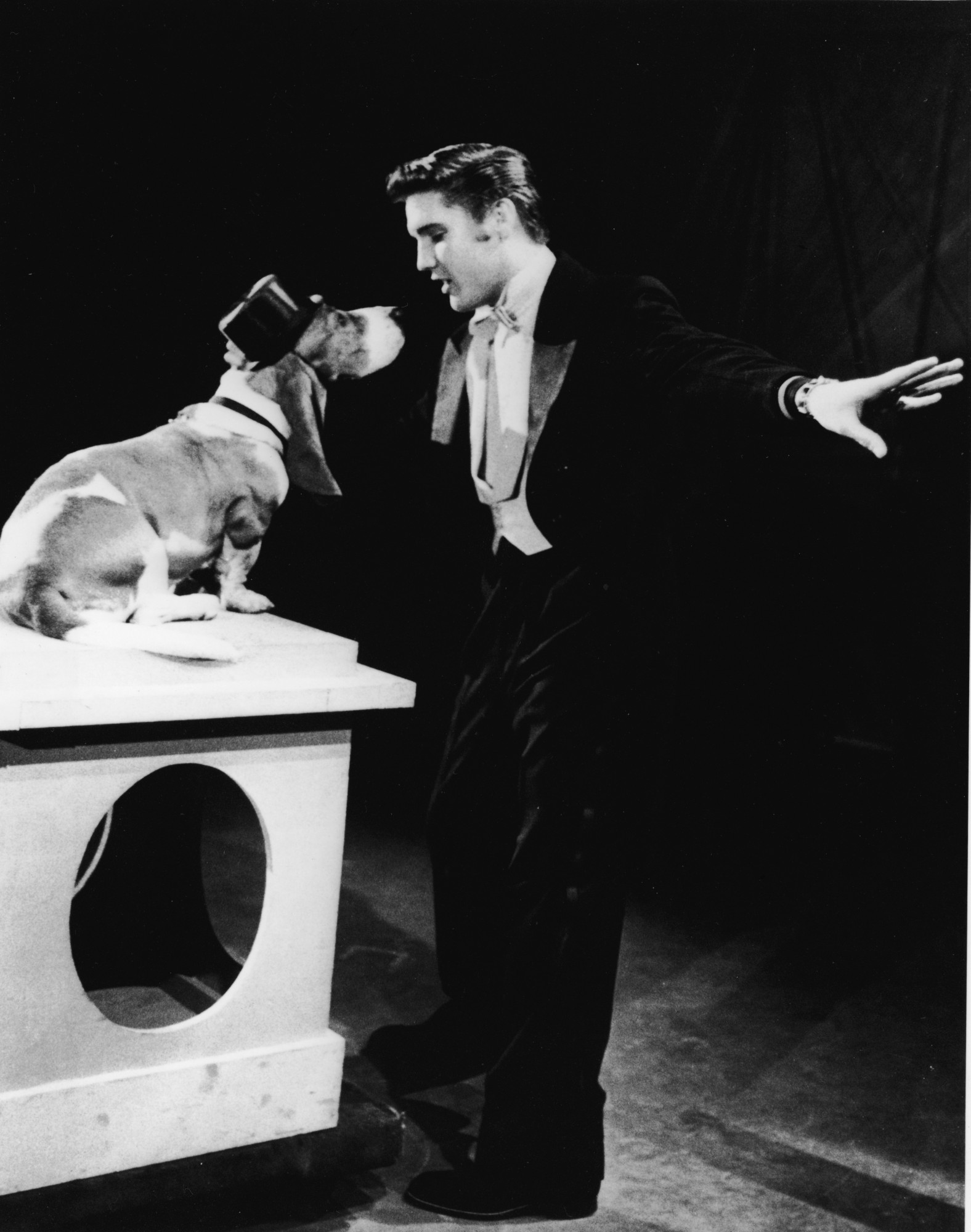
Elvis’ Song Hound Dog Released in 1956
Elvis Presley’s Hound Dog became one of his most iconic hits, symbolizing the rebellious spirit of rock ‘n’ roll. Originally recorded by Big Mama Thornton, Elvis’ energetic rendition, accompanied by his signature hip-shaking moves, electrified audiences. His performance of the song on The Milton Berle Show sparked controversy for its provocative dance, cementing his status as a cultural phenomenon. Written by Jerry Leiber and Mike Stoller, Hound Dog spent 11 weeks at number one on the Billboard charts. The song’s enduring popularity showcases its role in shaping rock music and Elvis’ meteoric rise to stardom. Getty Images / Nostalgic America, Inc.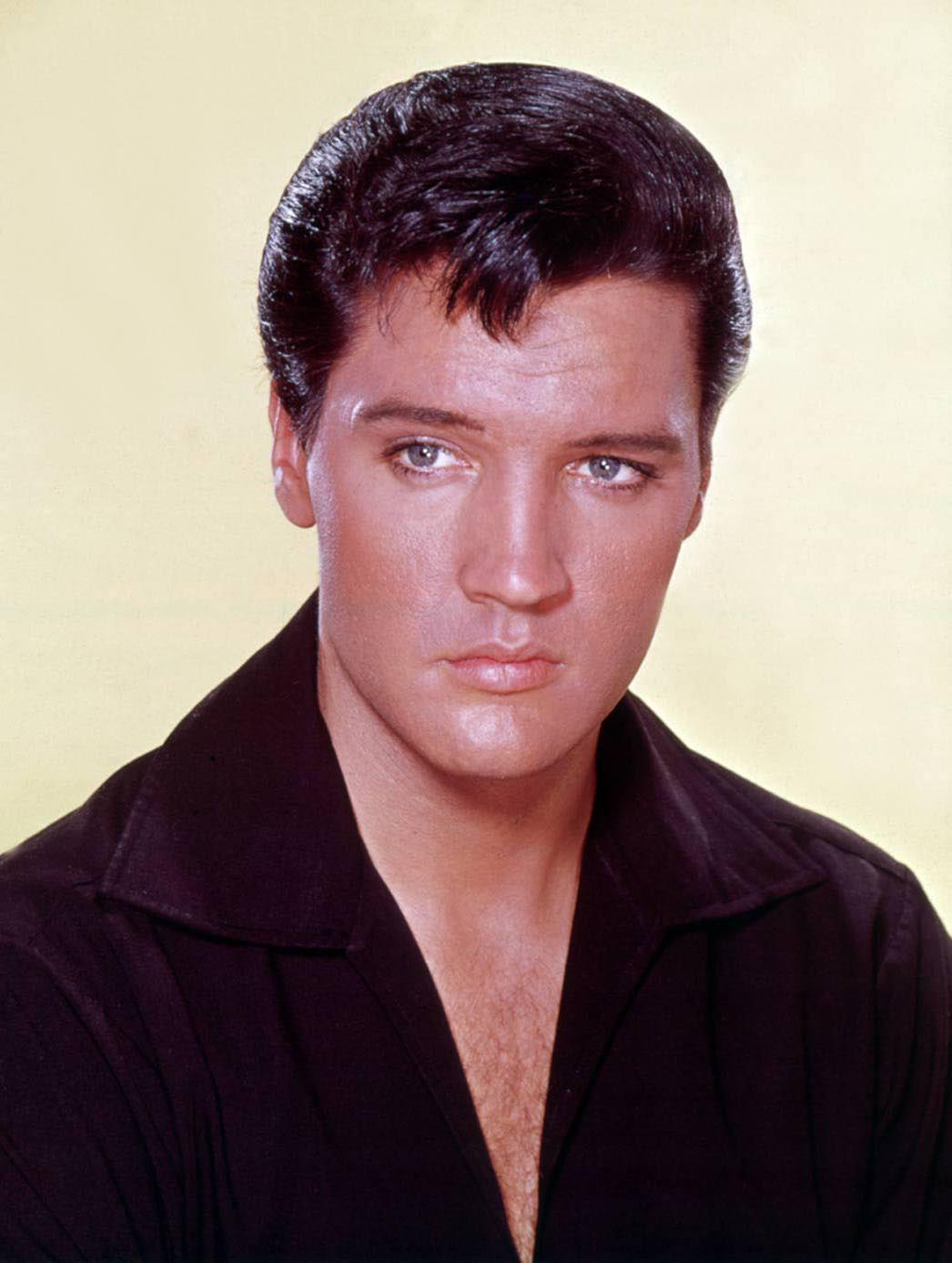
Cultural Impact and Controversy
Elvis' appearances on television shows like The Ed Sullivan Show in the mid-1950s cemented his status as a cultural icon. His provocative hip-shaking dance moves earned him both adoration and criticism, sparking debates about morality and youth culture. Dubbed "Elvis the Pelvis" by detractors, his performances pushed the boundaries of conservative norms and helped define the rebellious spirit of rock 'n' roll.Despite the controversies, Elvis' popularity continued to soar. Getty Images / Nostalgic America, Inc.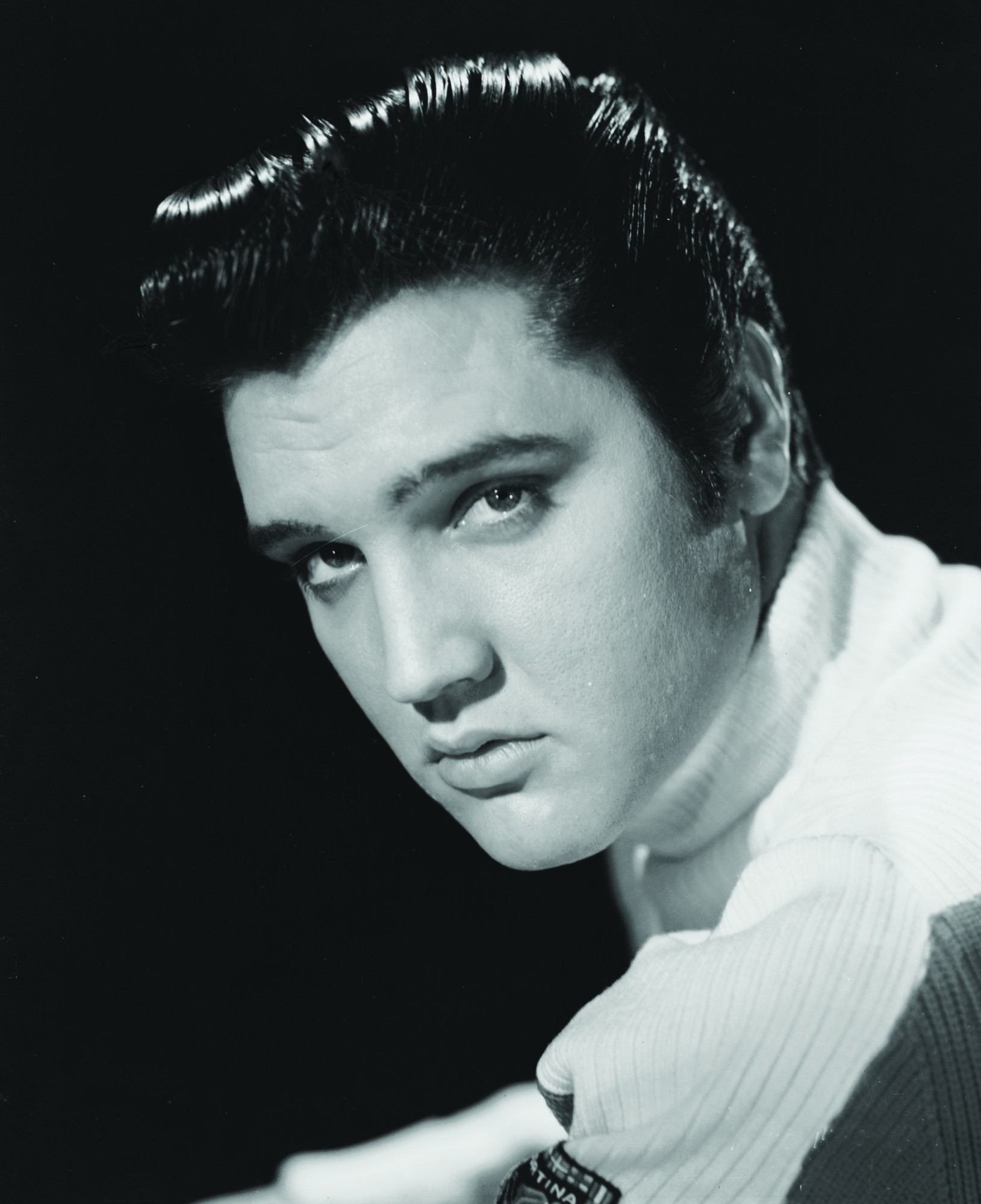
He was a World-wide Star
He starred in his first feature film, Love Me Tender (1956), which showcased his acting ability and further solidified his stardom. His combination of musical talent and Hollywood charisma made him a household name across the globe. Getty Images / Nostalgic America, Inc.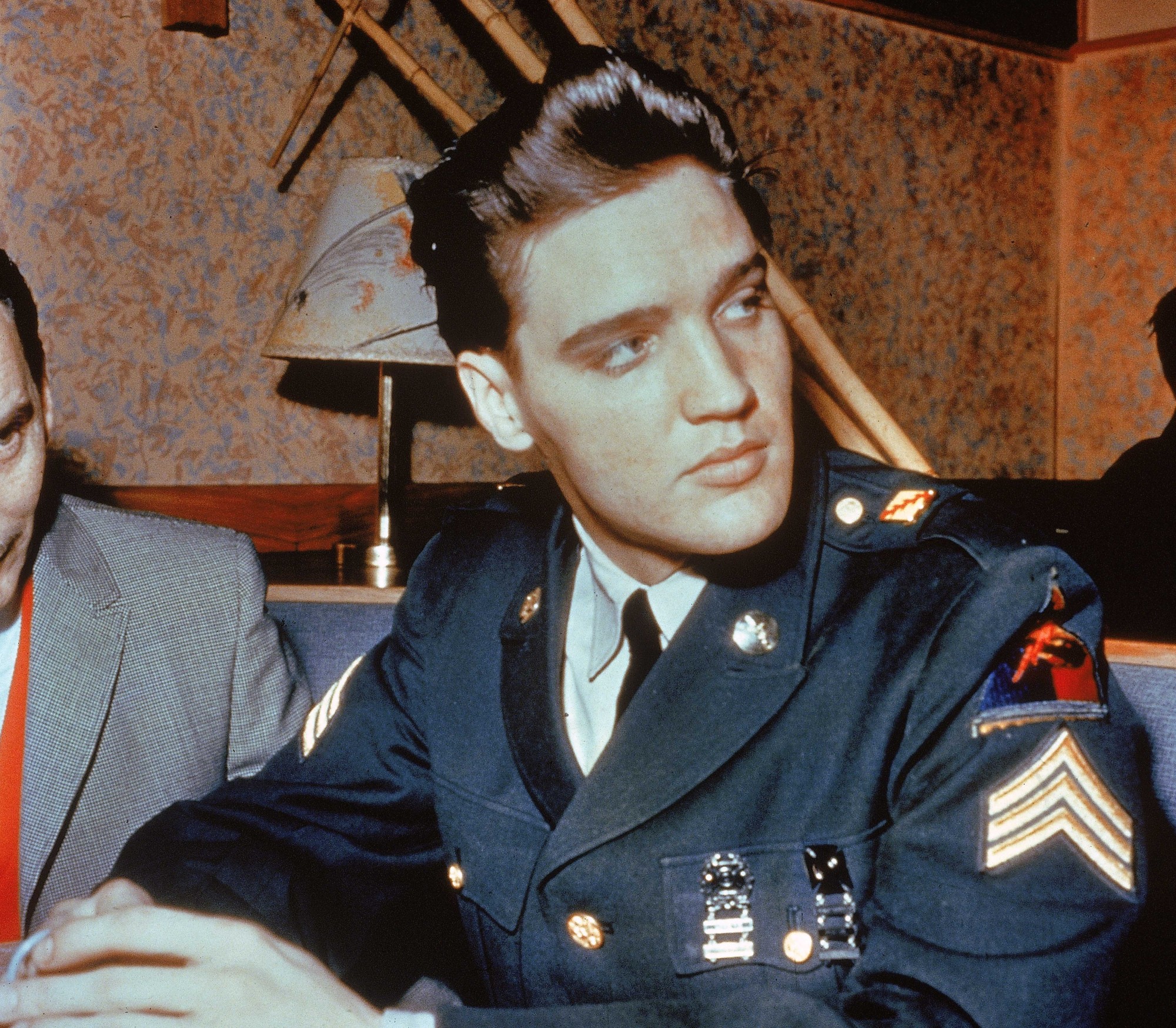
Elvis in the Army
Elvis Presley served in the U.S. Army from 1958 to 1960, a move that shocked fans but bolstered his image as an all-American hero. Getty Images / Nostalgic America, Inc.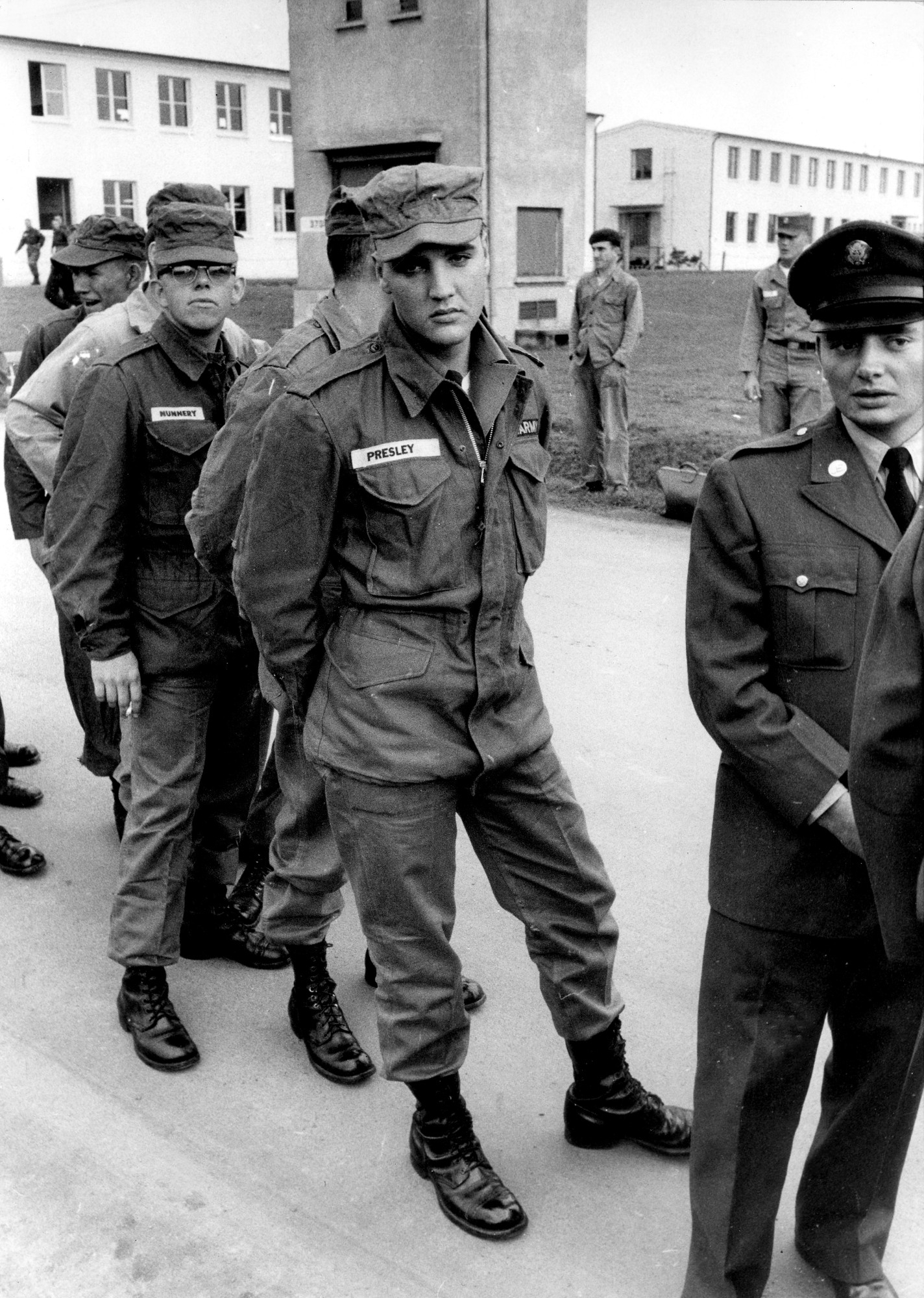
Military Service and Career Pause
Stationed in Germany, Elvis served as a regular soldier, rejecting offers for special treatment. During his service, he met Priscilla Beaulieu, who would later become his wife. Getty Images / Nostalgic America, Inc.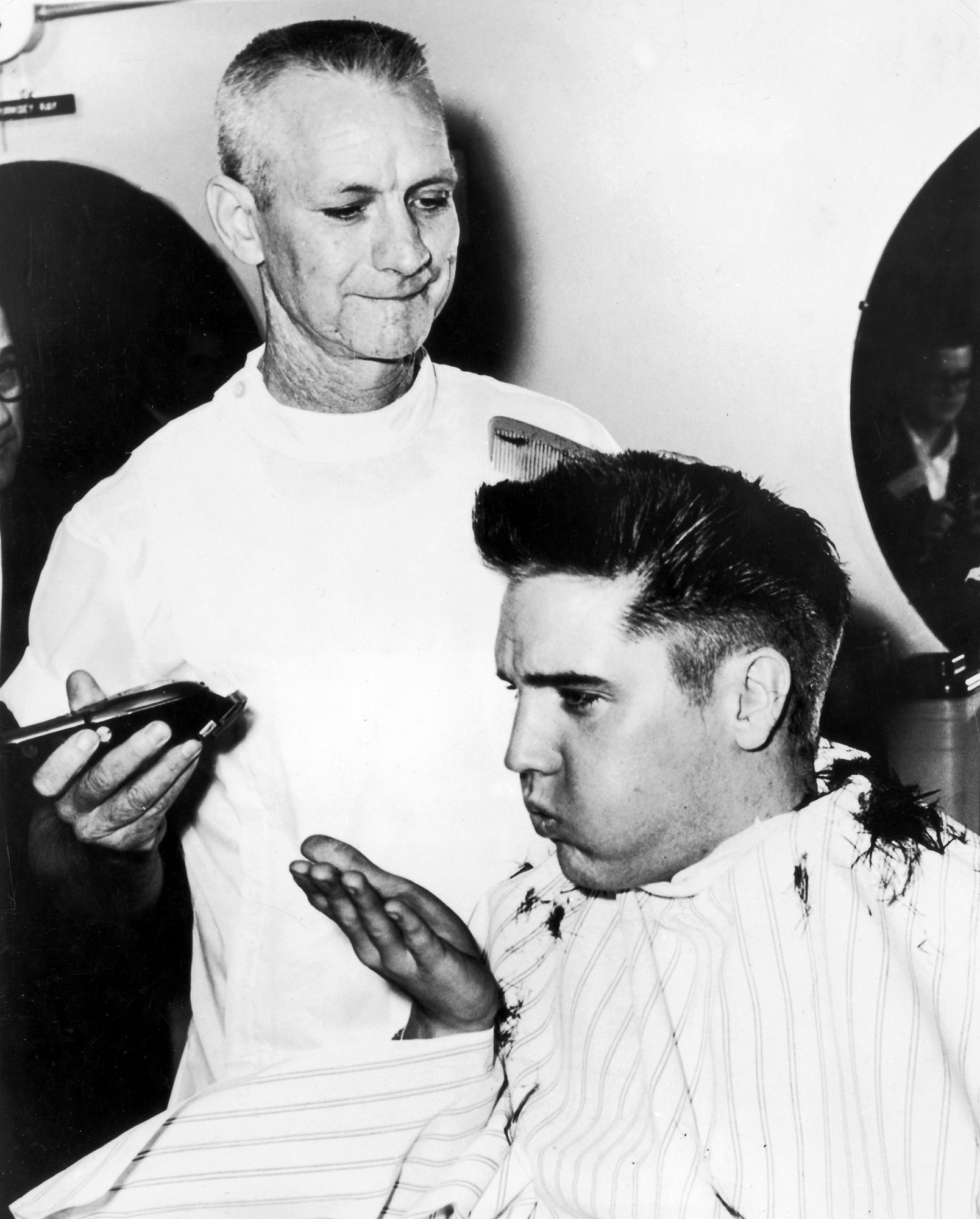
He even had his haircut to conform to the Army regulations
Despite his military obligations, Elvis stayed connected to his career, recording hits before deployment. His return was celebrated with the Frank Sinatra Timex Show in 1960. Elvis’ military service demonstrated humility and patriotism, earning him widespread respect and further solidifying his cultural influence. Getty Images / Nostalgic America, Inc.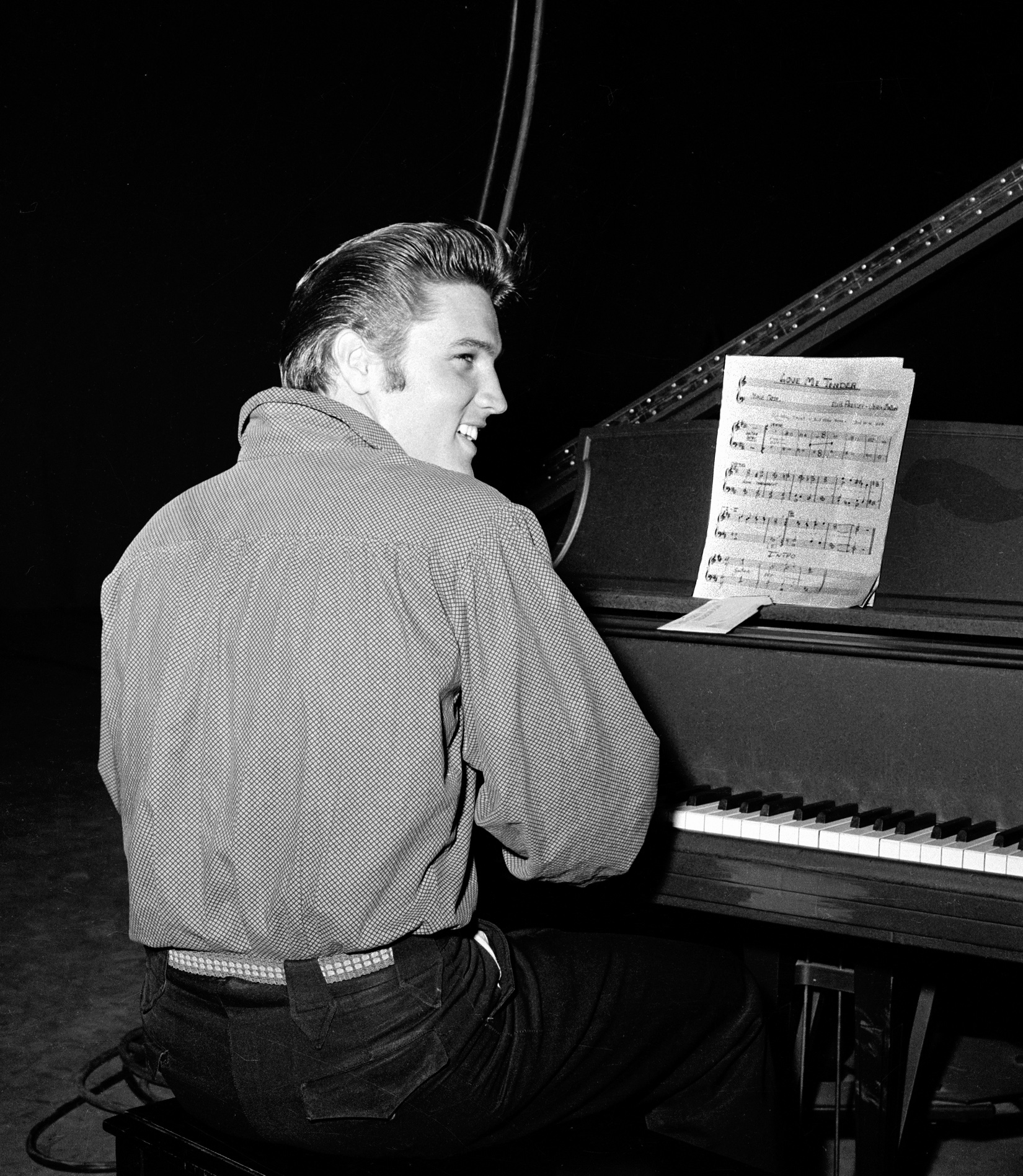
He continued his carreer while in the Army
During his military service, RCA kept his presence alive by releasing previously recorded material, including hits like "A Big Hunk o' Love." While his absence temporarily slowed his momentum, it also enhanced his mystique, and fans eagerly awaited his return. Getty Images / Nostalgic America, Inc.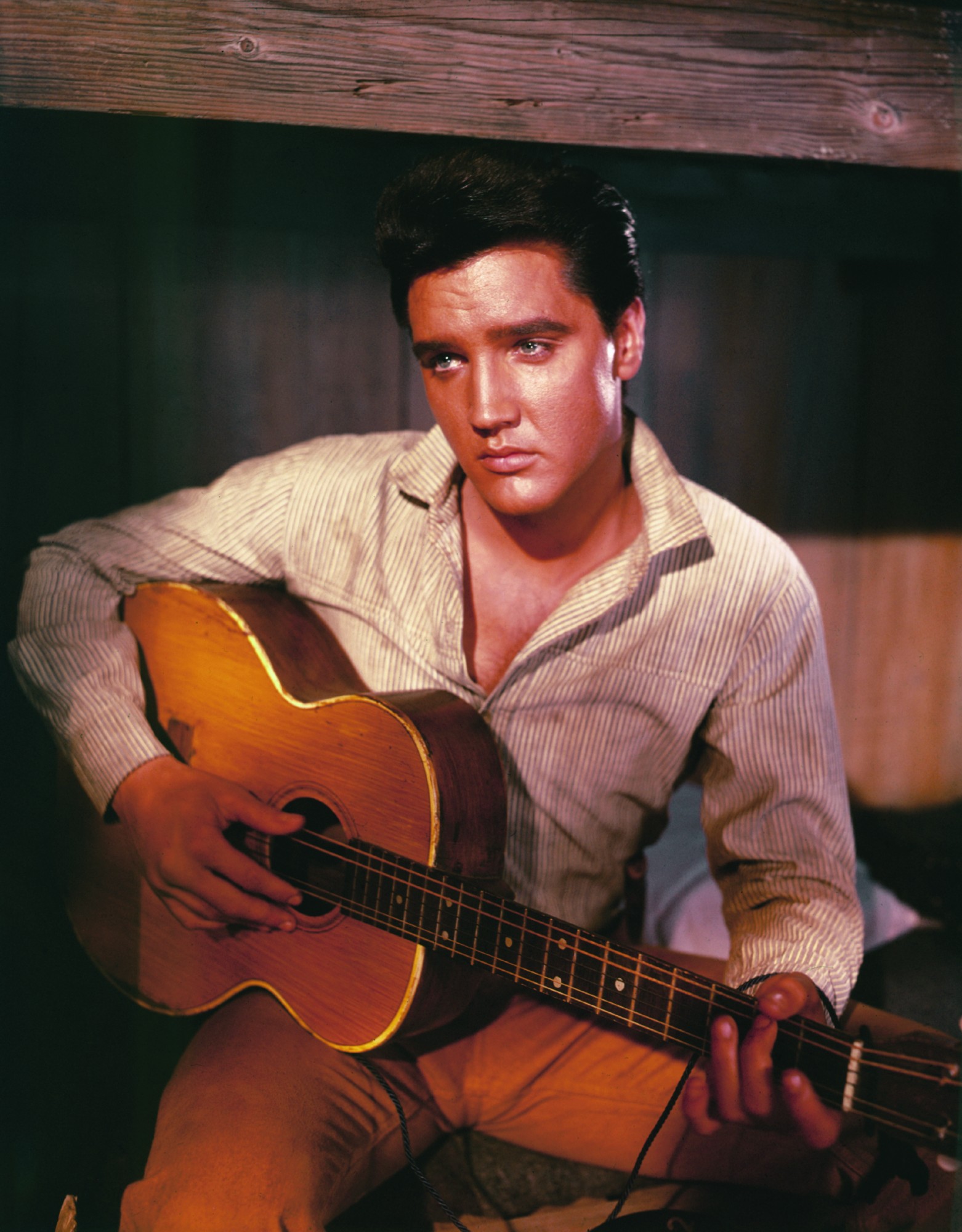
The Post-Army Era and Hollywood Years
Elvis returned to the music scene in 1960 with the album Elvis Is Back!, featuring hits like "Stuck on You" and "It’s Now or Never." His voice had matured, adding depth to his performances, which resonated with his growing audience.Throughout the 1960s, Elvis shifted his focus to Hollywood, starring in a series of musical films such as G.I. Blues (1960), Blue Hawaii (1961), and Viva Las Vegas (1964). While these movies were commercially successful and introduced memorable songs like "Can’t Help Falling in Love," critics often dismissed them as formulaic. The heavy emphasis on film projects limited his opportunities to tour and perform live, causing his relevance in the rapidly evolving rock scene to wane. Getty Images / Nostalgic America, Inc.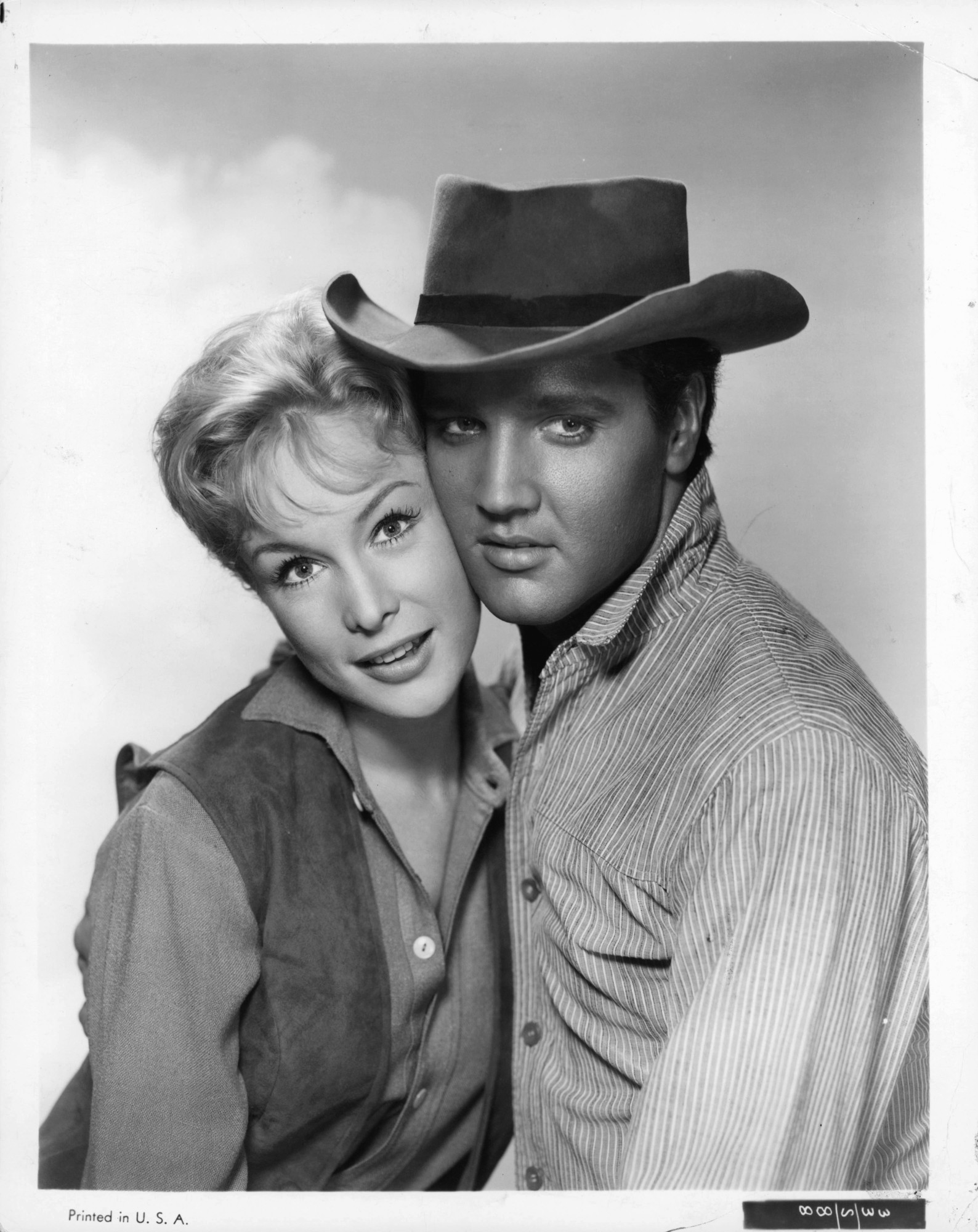
Elvis in the movie Flaming Star
In the 1960 film Flaming Star, Elvis Presley took on one of his most serious roles along side Barbara Feldon departing from his usual musical films. Directed by Don Siegel, the movie tells the story of Pacer Burton, a half-Native American caught between two cultures amid rising tensions. Elvis’ performance earned critical acclaim, showcasing his dramatic acting abilities. Unlike his earlier films, Flaming Star featured minimal musical numbers, emphasizing its dramatic tone. Though it wasn’t a commercial hit, the film is considered a significant step in Elvis’ acting career, demonstrating his potential beyond the music-driven roles that defined much of his filmography. Getty Images / Nostalgic America, Inc.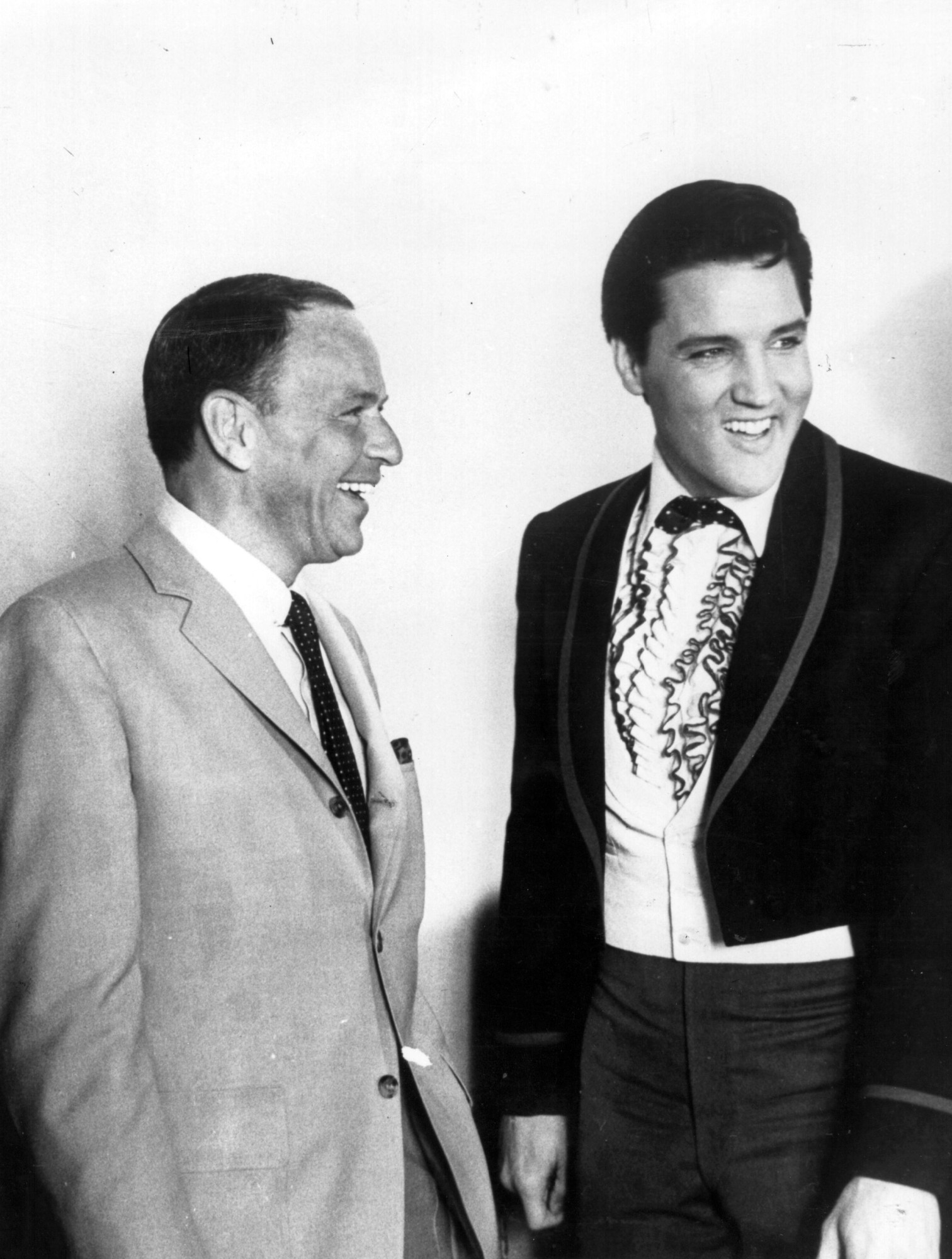
Elvis’ Friendship with Frank Sinatra
Elvis Presley and Frank Sinatra, icons of different musical eras, shared a mutual admiration and an unlikely friendship. Initially, Sinatra dismissed rock ‘n’ roll, but he later embraced Elvis’ talent. Their camaraderie was highlighted in the 1960 television special The Frank Sinatra Timex Show: Welcome Home Elvis, celebrating Presley’s return from military service. The two performed together, blending their distinct styles in a memorable moment for fans. Though their paths rarely crossed, their friendship symbolized a bridging of generational and musical divides, showcasing respect between two legends of American entertainment. Getty Images / Nostalgic America, Inc.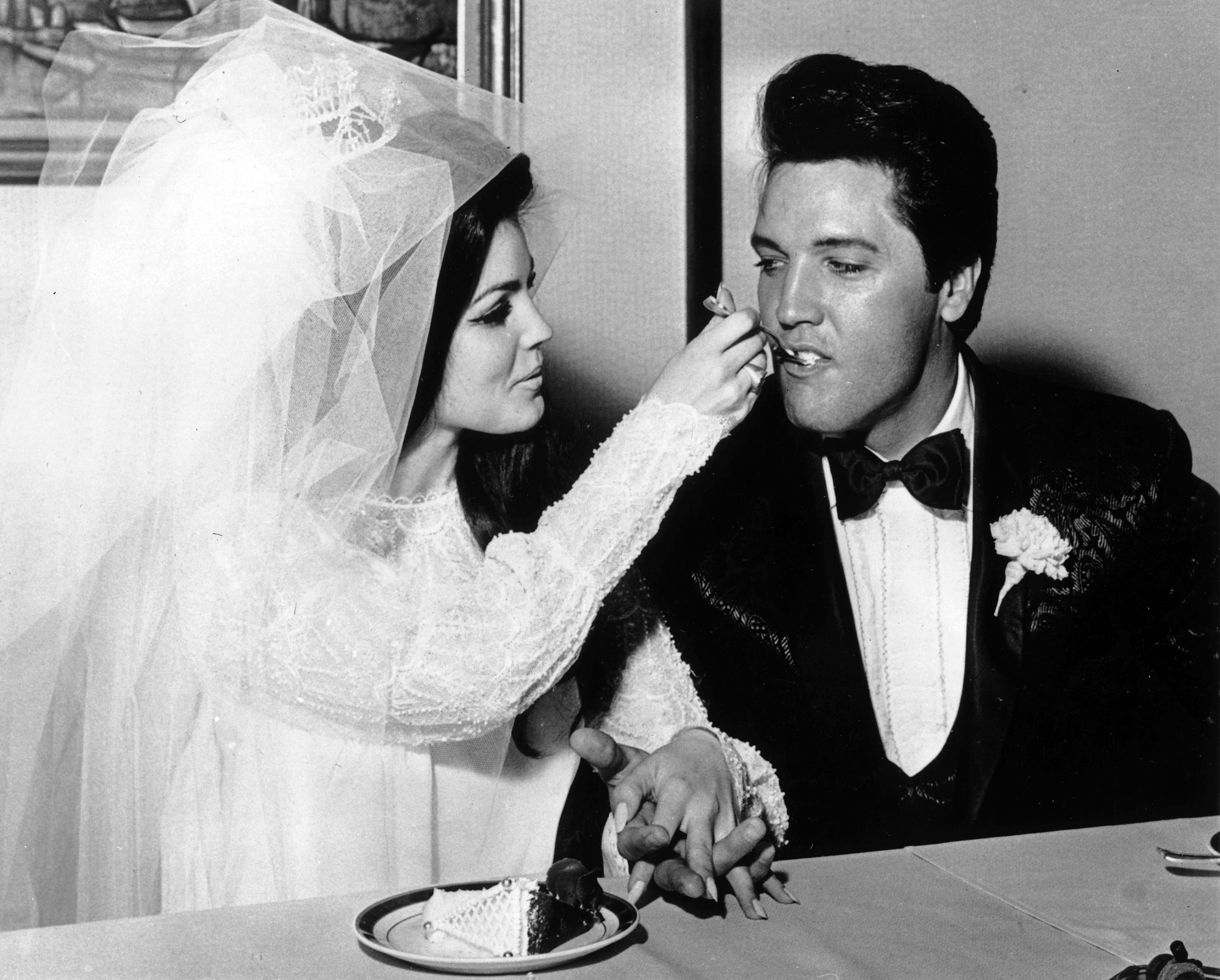
Elvis Marries Priscilla
Elvis Presley married Priscilla Beaulieu on May 1, 1967, in a private ceremony at the Aladdin Hotel in Las Vegas. The couple first met in 1959 while Elvis was stationed in Germany during his military service, and Priscilla was just 14 years old. Getty Images / Nostalgic America, Inc.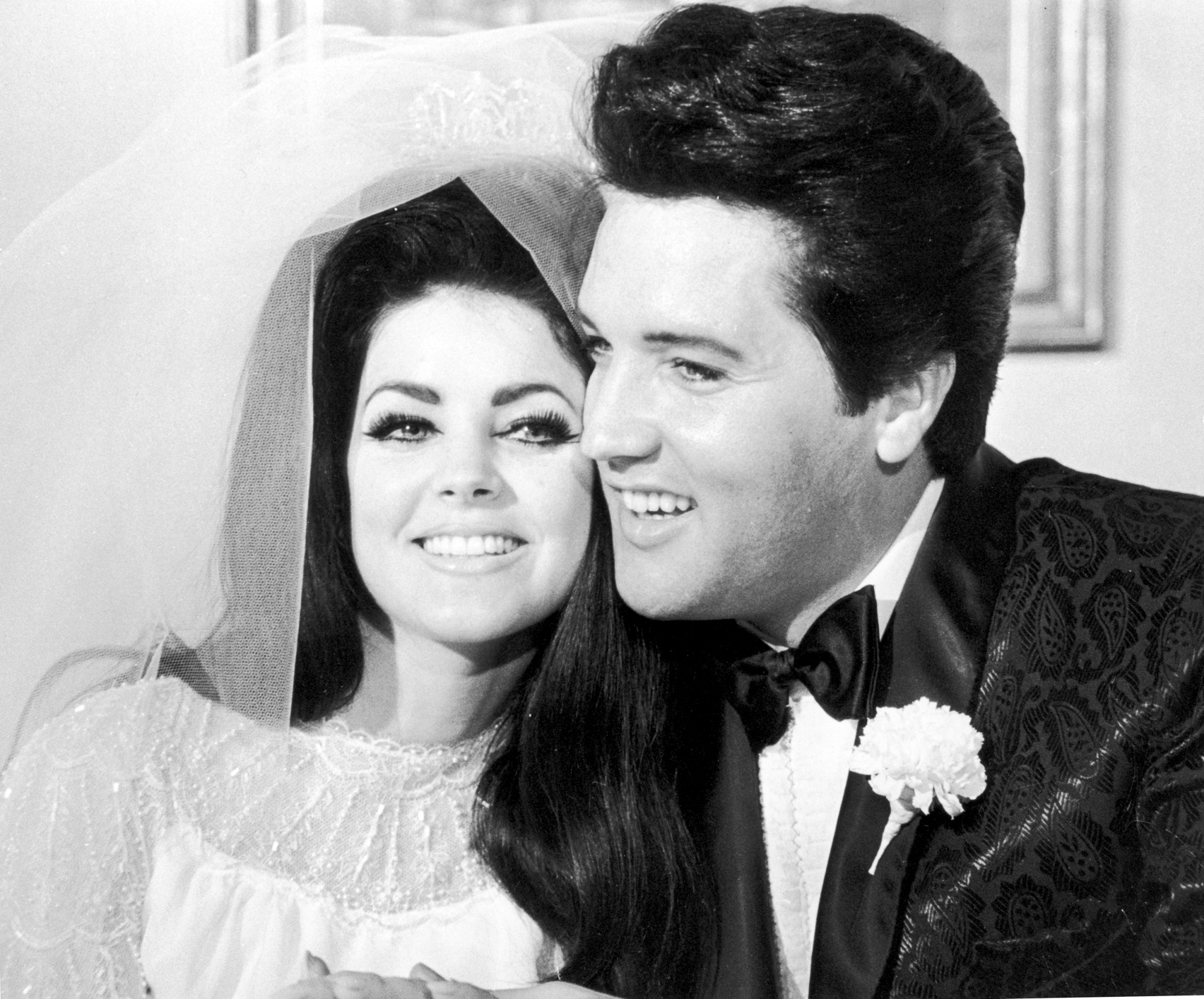
Their relationship remains a significant part of Elvis’ story
Their relationship developed over years of correspondence and visits. The intimate wedding, attended by close friends and family, was followed by a press conference and a lavish reception. Priscilla’s elegance and Elvis’ charisma made them a high-profile couple. They had one daughter, Lisa Marie, before divorcing in 1973, but their relationship remains a significant part of Elvis’ story. Getty Images / Nostalgic America, Inc.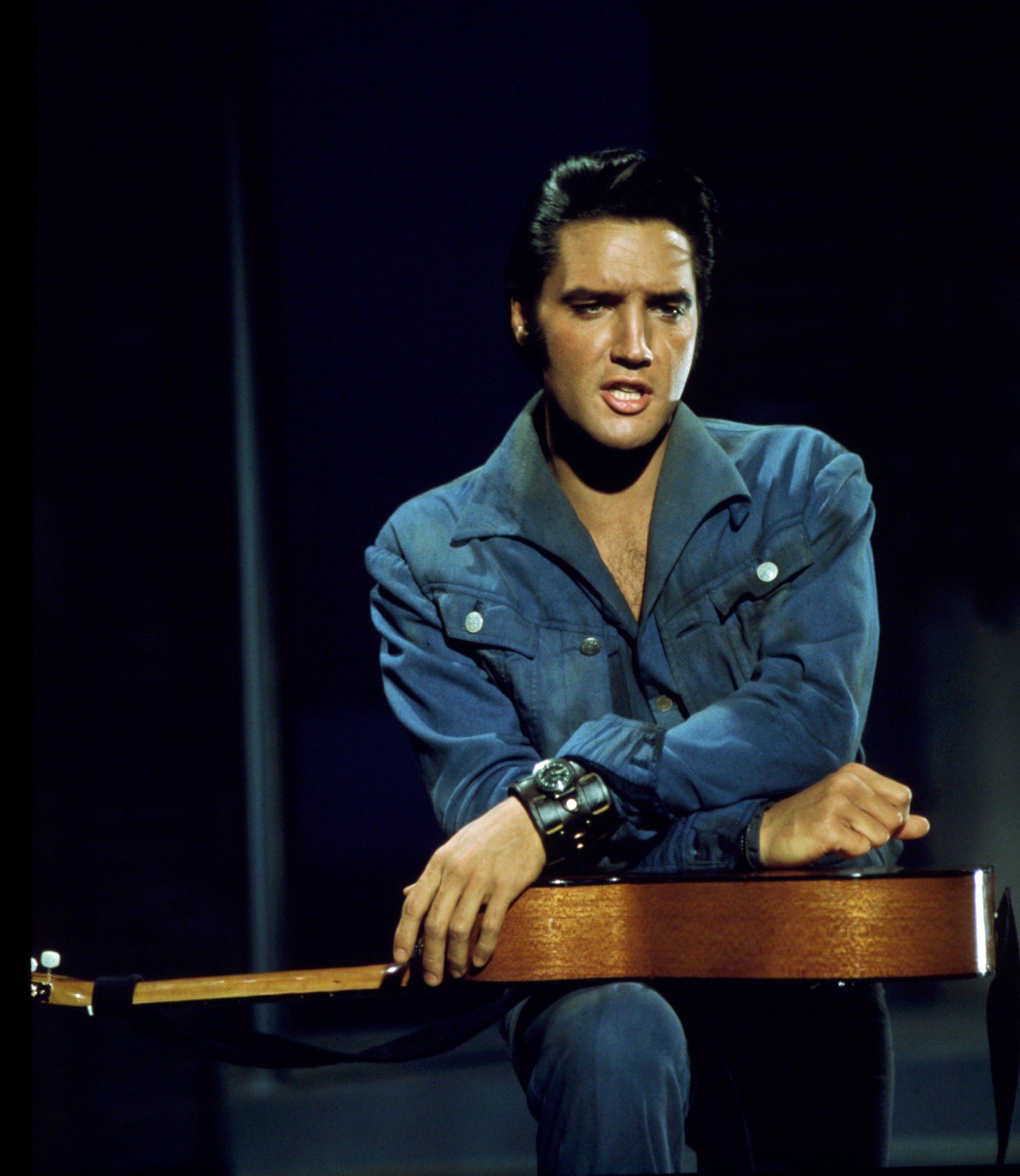
The Comeback Special of 1968
By the late 1960s, Elvis’ career needed a revival. The British Invasion, led by bands like The Beatles and The Rolling Stones, had shifted the focus of popular music. Recognizing the need to reconnect with his roots, Elvis collaborated with producer Steve Binder for a television special simply titled Elvis but often referred to as the "’68 Comeback Special."The special, aired in December 1968, featured an electrifying performance that reintroduced Elvis as a raw and passionate performer. Dressed in black leather, he delivered powerful renditions of hits like "Jailhouse Rock," "Heartbreak Hotel," and "If I Can Dream." The special was a critical and commercial success, reigniting his career and proving that Elvis was still a dominant force in music. Getty Images / Nostalgic America, Inc.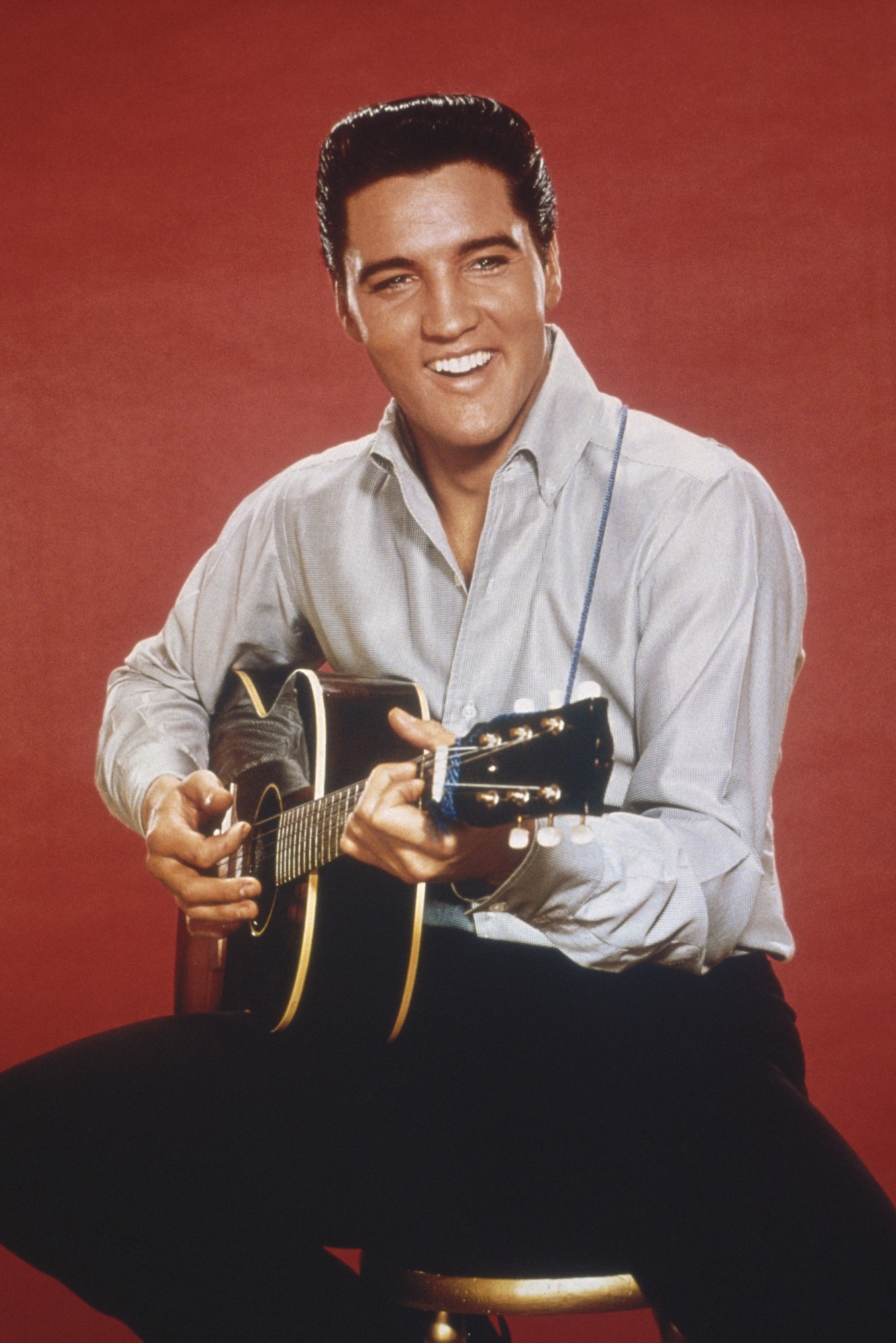
Las Vegas Residency and Return to Touring
Following the success of the comeback special, Elvis embarked on a new phase of his career with a groundbreaking residency in Las Vegas at the International Hotel in 1969. His live performances, characterized by dynamic vocals and elaborate stage presence, set a new standard for concert entertainment.In the same year, Elvis released From Elvis in Memphis, an album that marked a return to his musical roots with hits like "In the Ghetto" and "Suspicious Minds." The latter became one of his most iconic songs and a chart-topping success. Elvis began touring extensively, performing sold-out shows across the United States and captivating audiences with his charisma and vocal prowess. Getty Images / Nostalgic America, Inc.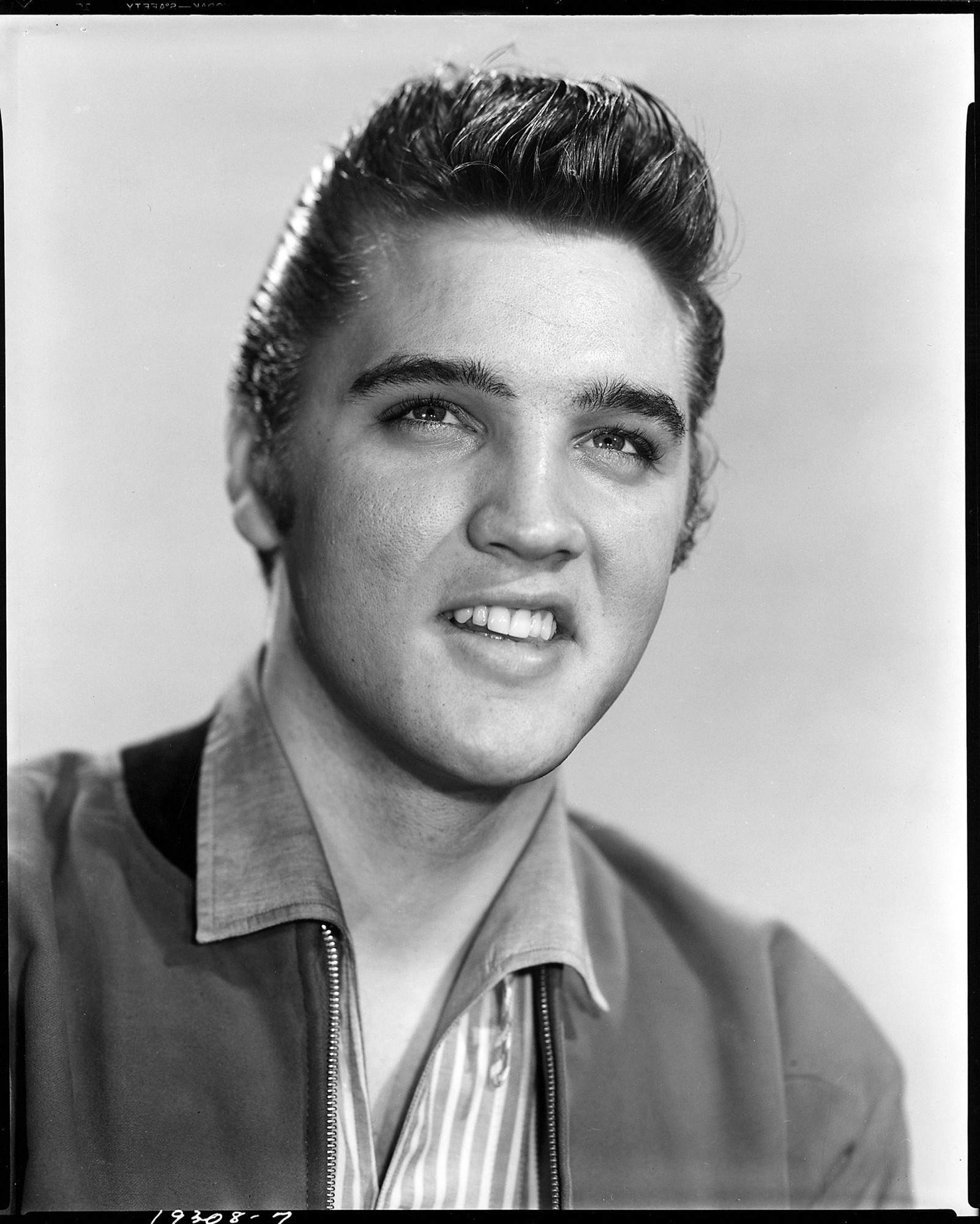
Decline and Challenges in the 1970s
While the early 1970s saw continued success, including landmark performances like the Aloha from Hawaii satellite concert in 1973, Elvis began to face personal and professional challenges. His marriage to Priscilla ended in divorce, and his health deteriorated due to prescription drug dependency.Despite these struggles, Elvis continued to release music and perform. Songs like "Burning Love" and his gospel recordings earned acclaim, showcasing his versatility as an artist. However, the grueling schedule of touring and the pressures of fame took a toll on his well-being. Getty Images / Nostalgic America, Inc.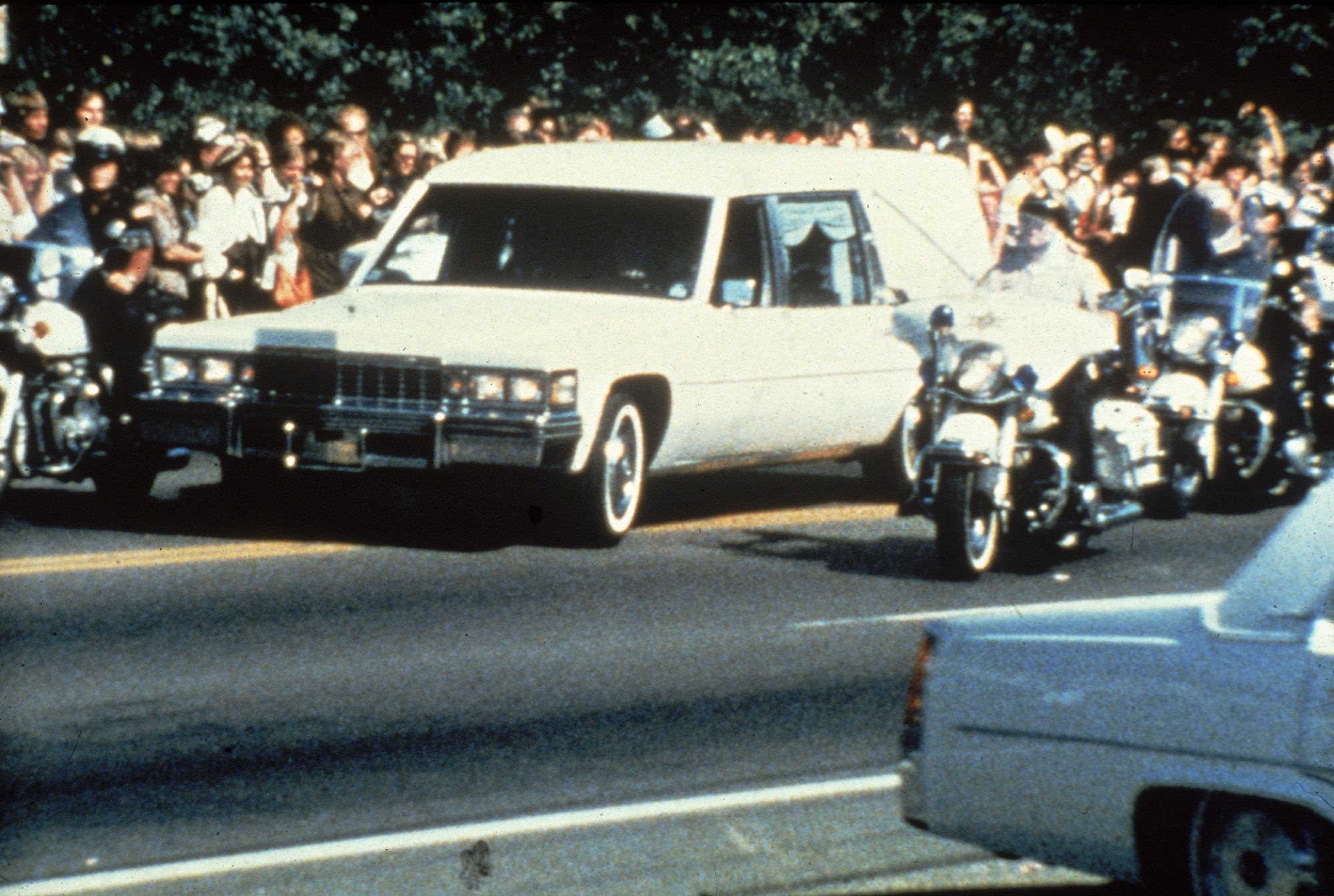
Elvis passed away at the age of 42 - A Legacy and Enduring Influence
Elvis Presley passed away on August 16, 1977, at the age of 42. Elvis Presley’s funeral took place on August 18, 1977, in Memphis, Tennessee, after his sudden death at the age of 42. Thousands of grieving fans lined the streets near Graceland, his iconic home, to pay their respects. A private ceremony attended by family and close friends was followed by a public viewing, drawing a crowd estimated at over 80,000. Elvis was initially laid to rest at Forest Hill Cemetery alongside his mother, but security concerns led to his reburial at Graceland. The outpouring of love and mourning from fans worldwide solidified his legacy as the King of Rock ‘n’ Roll. Getty Images / Nostalgic America, Inc.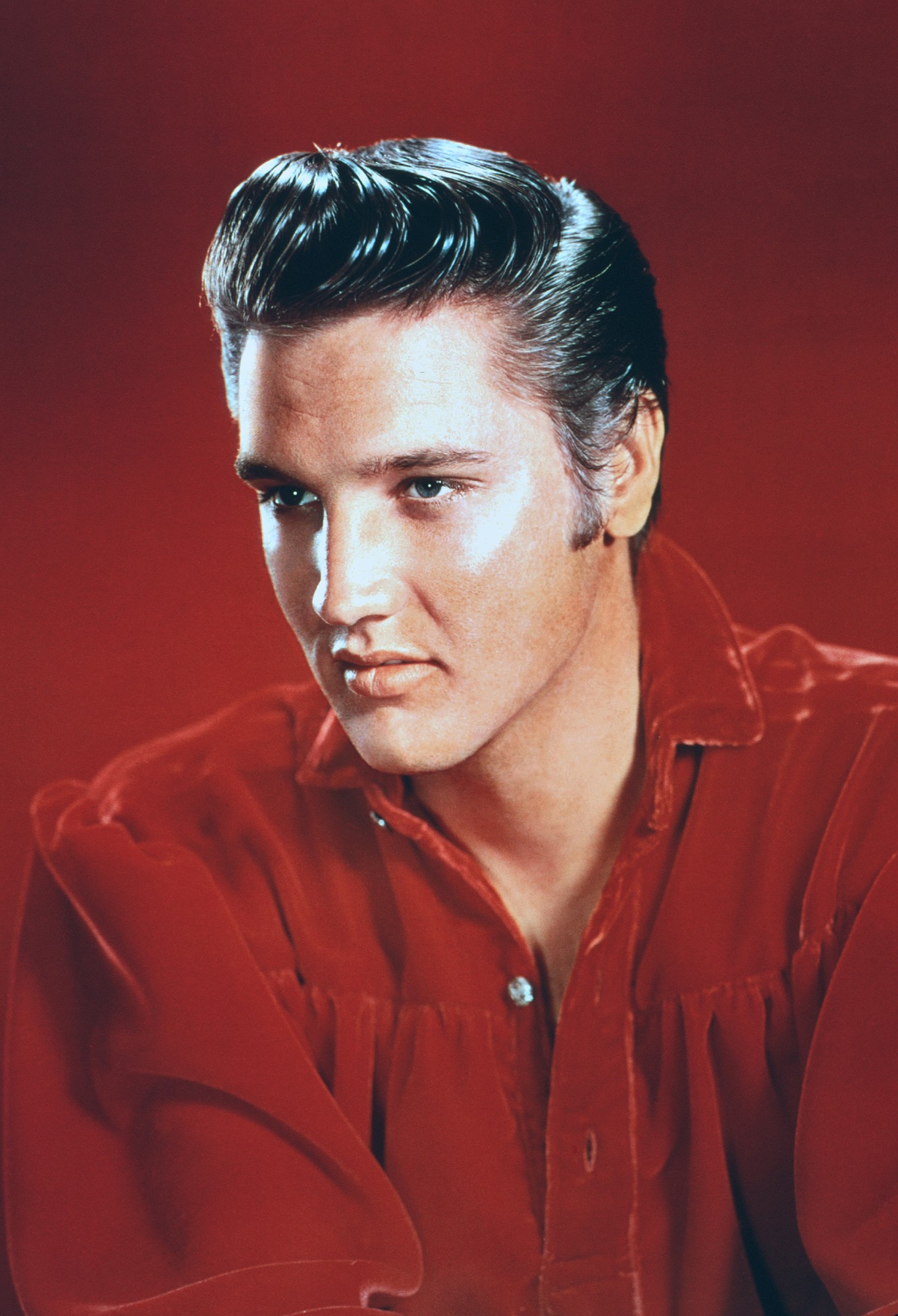
His impact on music and culture remains immeasurable
His death marked the end of an era, but his impact on music and culture remains immeasurable. He released over 700 songs and sold more than a billion records worldwide, making him one of the best-selling artists of all time.Elvis’ ability to blend genres and connect with audiences transcended music, influencing artists across generations. His contributions to rock ‘n’ roll paved the way for future stars, while his style, charisma, and rebellious spirit defined a cultural movement.Graceland, his Memphis home, has become a pilgrimage site for fans, preserving his memory and celebrating his life. His induction into multiple halls of fame, including the Rock and Roll Hall of Fame, underscores his significance in music history. Getty Images / Nostalgic America, Inc.